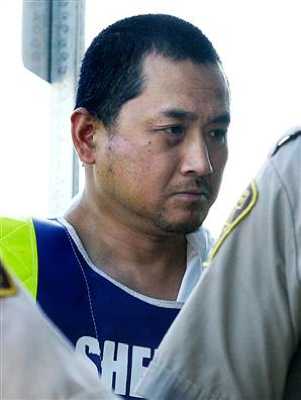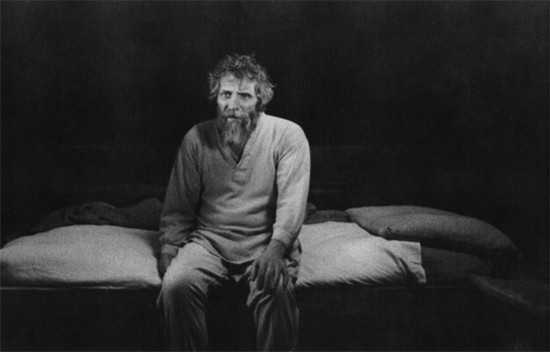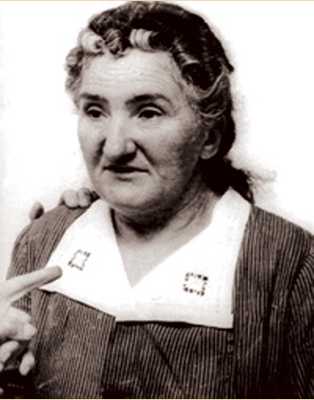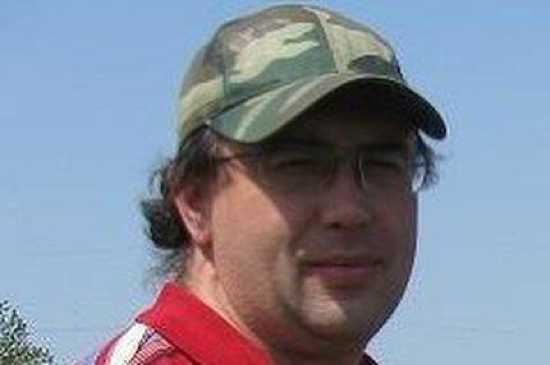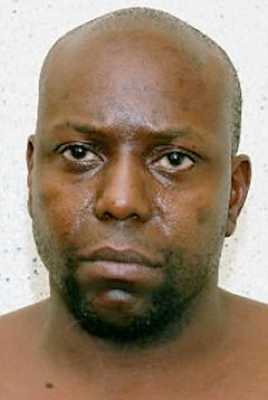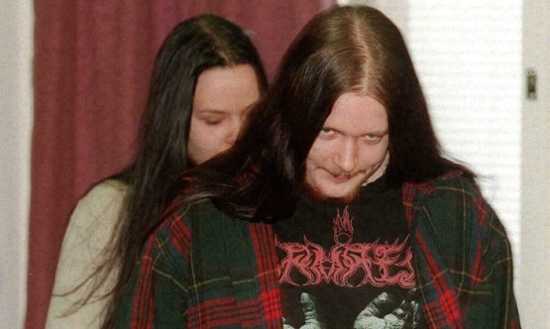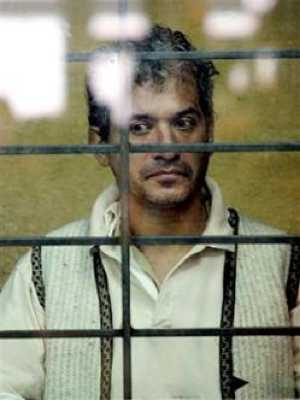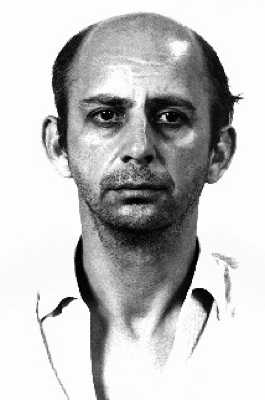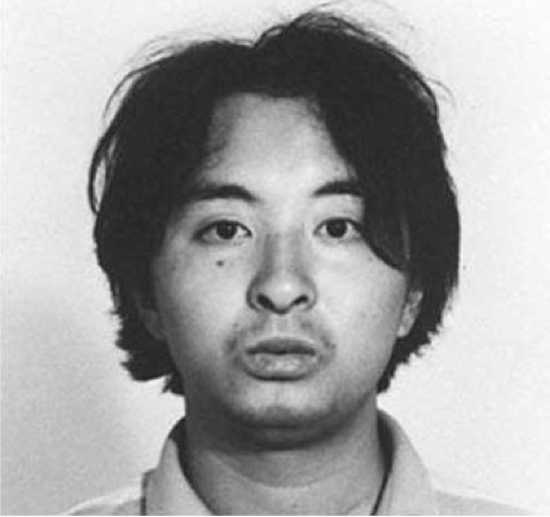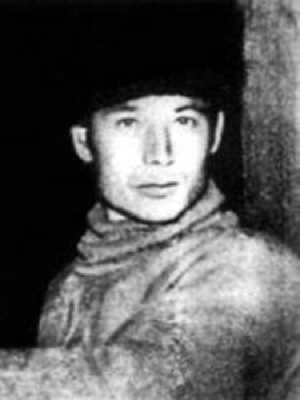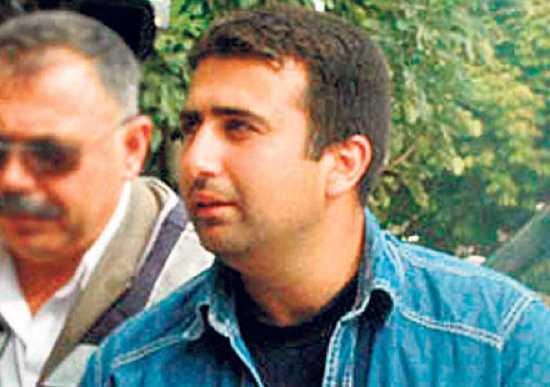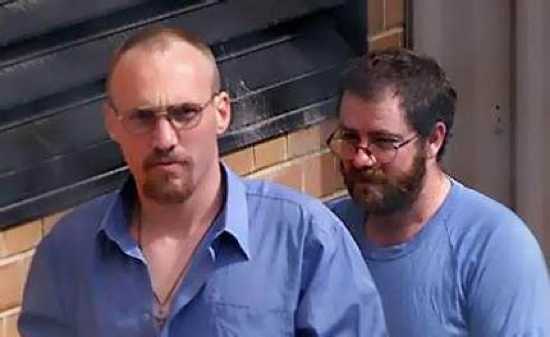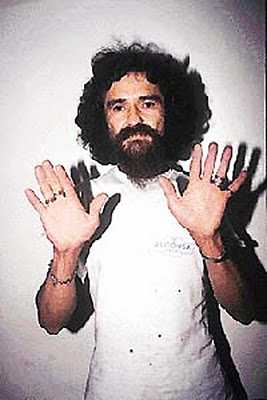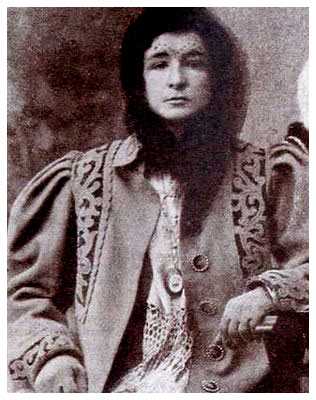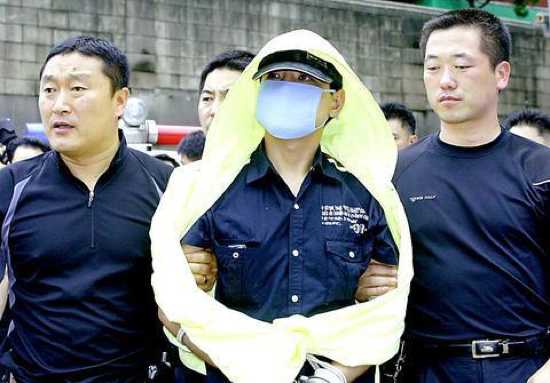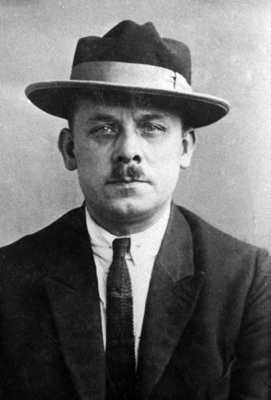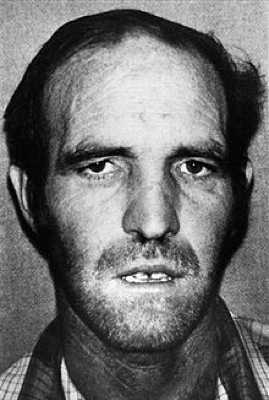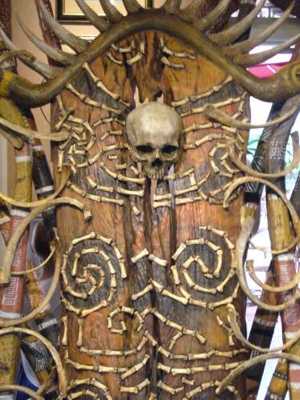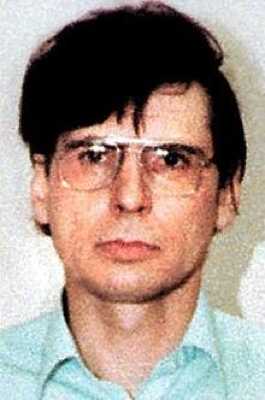Within the field of psychology there is a debate on what factors lead a person to practice criminal cannibalism. Some evidence suggests that cannibalism is a result of trauma experienced in childhood. It has been called a “psychological response to anger and frustration” expressed through oral aggression and an urge to literally absorb a person through consumption. In reality, people who kill and eat others are mentally unstable and dangerous predators. These types of individuals are rare and many countries have never seen a serial human cannibal. The life of a cannibal encompasses some of the worst and most sadistic examples of human capability. This article will examine twenty people who were caught in the act of eating or having just consumed a human victim. It was organized specifically by country, with one person chosen from each area of the world. However, it has two Russians and two Germans, as I could find eighteen countries with documented cases of criminal cannibalism. The article is a sequel to a list posted on December 18, 2008, which covers the Top 10 Cases of Human Cannibalism. For that reason, it will not include any people mentioned in that article, most notably Albert Fish, Andrei Chikatilo, Armin Meiwes, Issei Sagawa, and Jeffrey Dahmer.
Vince Weiguang Li was born in Dandong, China on April 30, 1968. He immigrated to Canada from China on June 11, 2001, and became an official Canadian citizen on November 7, 2006. On the evening of July 30, 2008, a 22-year-old Canadian man named Tim McLean was riding on the same Greyhound bus as Vince Weiguang Li. The bus was traveling from Edmonton to Winnipeg. According to witnesses, while McLean was sleeping on the bus, Li suddenly produced a large knife and began to stab him repeatedly in the neck and chest until he decapitated him. Li then displayed McLean’s severed head to other passengers as they fled the bus in horror. The event took place approximately 30 km west of Portage la Prairie, Manitoba on the Trans Canada Highway. On several occasions, Li went back to the body, severed parts, and consumed some of McLean’s flesh. The Royal Canadian Mounted Police (RCMP) responded to the call and found the suspect still on board the bus. The other passengers were huddled at the roadside, some of them crying and vomiting. Witnesses continually observed the suspect stabbing and cutting McLean’s body, and carrying McLean’s severed head. Five hours after the murder, the suspect attempted to escape from the bus by breaking through a window. Vince Weiguang Li was tazed twice, handcuffed, and placed in the back of a police cruiser. Inside of his pockets, the police found parts of the victim’s body. This included McLean’s ears, nose, and tongue. The victim’s eyes and part of his heart were never recovered and are presumed to have been eaten by Li. Vince Weiguang Li’s trial started on March 3, 2009 and he plead not criminally responsible due to insanity. He was remanded to a high-security mental health facility where he remains to this day.
James Douglas, 3rd Marquess of Queensberry, was a Scottish nobleman. He was the eldest son of James Douglas, 2nd Duke of Queensberry, who was created Duke of Dover, Marquess of Beverley, and Earl of Ripon in 1708. In 1709, the elder Douglas was made Secretary of State for Scotland. The younger James Douglas was born in 1697. Stories describe him as an “imbecile,” and violently insane. Douglas was kept under lock and key from childhood at Queensberry House in Edinburgh, which is now part of the Scottish Parliament complex. In 1706, the elder James Douglas attempted to have his son removed from the succession. It is reported that when the Act of Union was signed in 1707, which placed the Kingdom of England and the Kingdom of Scotland under the same monarch, the disruption allowed the 10-year-old James Douglas to escape. He then entered the kitchen of Queensberry House and slaughtered a young servant. The report says that Douglas roasted the boy alive on a revolving spit. He then ate sections of the boy before being apprehended. After the event, Douglas was known as “The Cannibalistic Idiot,” and the oven he used to kill the boy can still be seen in the Parliament’s Allowances Office. James Douglas died in 1715 and was buried in Calverley churchyard. His brother Charles Douglas, 3rd Duke of Queensberry succeeded him. The Queensberry House kitchen is still said to be haunted to this day.
The story of Tarrare is one of the most bizarre in history. Around 1772, Tarrare was born in France. As a teenager, it became apparent that Tarrare was different from other people because of his endless need for food. His parents eventually had to disown him because Tarrare ate everything in the house, including the pets. In his twenties, Tarrare was the warm-up act to a traveling charlatan. He would swallow corks, stones, live animals, and whole apples. To satisfy his hunger, Tarrare would eat anything available from the town gutters and garbage piles. His bizarre ability soon caught the attention of the government and Tarrare was the subject of a series of medical experiments to test his eating capacity. Tarrare was known to eat live cats, snakes, lizards, and puppies. On one occasion, he swallowed an eel without chewing. Despite his unusual diet and endless need for meat, Tarrare was of normal sized man with no signs of mental illness. He was described as having unusually soft hair, and an abnormally wide mouth in which his teeth were heavily stained, and lips almost invisible. Tarrare constantly suffered from foul body odor. He was described as stinking “to such a degree that he could not be endured within the distance of twenty paces.” General Alexandre de Beauharnais decided to put Tarrare’s abilities to use, and he was employed as a courier by the French army. He would swallow documents, pass through enemy lines, and recover them from his stool once safely at his destination. Tarrare was strongly chastened for his hunger and wanted to fix the problem. He agreed to submit to a procedure that would cure his appetite, but it failed. While at the hospital getting treated, Tarrare would sneak out of his room and scavenge for entrails left in gutters, rubbish heaps, and outside butcher shops. He attempted to drink the blood of other patients in the hospital and looted the corpses in the morgue. After falling under suspicion of eating a toddler, Tarrare was ejected from the hospital. In 1798, he reappeared in Versailles suffering from severe tuberculosis and died. After his death, Tarrare’s corpse rotted quickly. At the autopsy, his body was found to be filled with pus. Tarrare’s liver, gallbladder, and stomach were abnormally large and he was covered in ulcers. Another man with a similar case to Tarrare is a Polish soldier named Charles Domery (1778-1800). Domery is known to have eaten 174 cats in a year, and although he disliked vegetables he would eat 4 to 5 pounds (1.8 to 2.3 kg) of grass each day if he was unable to find other food. During his service on the French frigate Hoche, he attempted to eat the severed leg of a crew member hit by cannon fire, before other members of the crew wrestled it from him.
In 1893, Leonarda Cianciulli was born in Montella, Italy. As a child, she attempted suicide on two separate occasions and was greatly disturbed. Cianciulli had seventeen pregnancies during her marriage, but lost three of the children to miscarriage, and ten more died in their youth. In 1939, Cianciulli heard that her eldest son, Giuseppe, was to join the Italian army in preparation for World War II. She came to the conclusion that his safety required human sacrifices. Cianciulli then planned the murder of three middle-aged women. After the victims were comfortable, she killed them with an axe and cut their bodies into nine parts. She also gathered the blood into a basin. In her memorial (titled “An embittered soul’s confessions”) Cianciulli describes what happened next: “I threw the pieces into a pot, added seven kilos of caustic soda, which I had bought to make soap, and stirred the whole mixture until the pieces dissolved in a thick, dark mush that I poured into several buckets and emptied in a nearby septic tank. As for the blood in the basin, I waited until it had coagulated, dried it in the oven, ground it and mixed it with flour, sugar, chocolate, milk and eggs, as well as a bit of margarine, kneading all the ingredients together. I made lots of crunchy tea cakes and served them to the ladies who came to visit, though Giuseppe and I also ate them.” In regard to her third murder, Cianciulli said: “She ended up in the pot, like the other two…her flesh was fat and white, when it had melted I added a bottle of cologne, and after a long time on the boil I was able to make some most acceptable creamy soap. I gave bars to neighbors and acquaintances. The cakes, too, were better, that woman was really sweet.” Leonarda Cianciulli has become known as the “Soap-Maker of Correggio,” because she turned the remains of her victims into soap and food. After a neighbor became suspicious of Cianciulli, the police were called, and she immediately confessed to the murders, providing detailed accounts of what she had done. Cianciulli was found guilty of her crimes and sentenced to thirty years in prison and three years in a criminal asylum. Leonarda Cianciulli died of cerebral apoplexy in the women’s criminal asylum in Pozzuoli on October 15, 1970. A number of artifacts from the case, including the pot in which the victims were boiled, are on display at the Criminological Museum in Rome.
Until August 2011, people in the village of Sokol, Slovakia, knew Matej Curko as an ordinary guy that lived with his wife and two children. In reality, he is the latest person to be caught cannibalizing victims he met on the Internet. We will never know the full story behind the “Slovak Cannibal” because he was shot and killed by police. However, in his online conversations, Curko is quoted as saying “I am not a rapist, not gay, I am just a pervert who wants to feel death.” In the summer of 2011, police were contacted by a Swiss man who said that Curko was attempting to coerce him into suicide and cannibalism on the Internet. The police responded by putting together an online operation where Curko was tricked into meeting an agent. After officers rushed the scene, Curko pulled out a gun, so a sniper shot him five times. Curko later died in the hospital. After a search of his home, police found a large collection of human body parts in his “fridge of horrors.” Curko kept the body parts of his victims for later consumption. Inside the fridge, police found the remains of two Slovakian women who disappeared in 2010. The women are thought to have volunteered themselves for murder and cannibalization. Police are now attempting to link Matej Curko to the disappearance of thirty Italian women between January 2009 and May 2011. The case shocked people in Slovakia and made us all wonder how a seemingly ordinary man could carry out such violent acts.
In 1969, Peter Bryan was born In London. His parents were immigrants from Barbados. In 1994, Bryan was sent to Rampton Secure Hospital after admitting to the unlawful killing of a 20-year-old shop assistant named Nisha Sheth, who was beaten to death with a hammer in 1993. In October 2003, psychiatrists noted that there had been “a continued improvement in his mental state” and talked of plans to move Peter Bryan to a more independent accommodation. In January 2004, social workers applied for a transfer to a “low-support accommodation.” He was described as a nice man, lonely with no friends. However, in early 2004, Bryan was transferred to an open psychiatric ward at Newham General Hospital after allegations that he had indecently assaulted a 16-year-old girl. In February 2004, he walked out of the mental health unit in Newham, east London and cannibalized his friend Brian Cherry. Cherry was killed by at least 24 hammer blows to the head. On the night in question, one of Cherry’s friends Nicola Newman let herself into his flat around 7.15pm and noticed a strong smell of disinfectant. Peter Bryan then emerged from the kitchen bare-chested, holding a knife, and announced: “Brian is dead.” She didn’t believe him at first until she saw Cherry’s body with his arms and legs separated. The police arrived to find Peter Bryan standing in the hallway in the dark with bloodstained hands, jeans, and shoes. In the kitchen officers noticed a small amount of human flesh in a frying pan next to an open tub of Clover butter. The meat was part of Brian Cherry’s brain. The police also found brain tissue and hair matted with blood on a plate next to a knife and fork on the draining board. Peter Bryan told officers he had killed Mr. Cherry and “I ate his brain with butter, it was really nice.” He later added: “I would have done someone else if you hadn’t come along. I wanted their souls.” While at Pentonville jail, Bryan told a member of the staff that he wanted to eat someone’s nose and prison officers had to use riot shields when unlocking his cell in case of attack. Despite the danger, doctors believed that Peter Bryan, who had a long history of brutal violence and deception, should be transferred to a medium risk ward. He was moved to Broadmoor Hospital, where he killed his third victim, a fellow patient, Richard Loudwell, aged 60. Bryan battered Loudwell and tied a ligature around his neck. Mr. Loudwell died in the hospital later that day. Peter Bryan said that if he had not been interrupted he would have eaten Loudwell’s flesh. On March 15, 2005, Peter Bryan pleaded guilty at the Old Bailey to two counts of manslaughters on the grounds of diminished responsibility. Judge Giles Forrester said: “You killed on these last two occasions because it gave you a thrill and a feeling of power when you ate flesh.” Bryan, who suffers from paranoid schizophrenia, will never be released from jail.
Jarno Elg is responsible for the most gruesome homicide in Finnish history. In 1975, Elg was born in Hyvinkää, Finland. As a child, he had a long history of violence towards animals. In one case, Elg killed a dog by duct taping it up and hitting it on a metal pipe. On November 21, 1998, Jarno Elg entered the house of an unnamed man and strangled him to death. He then continued to dissect the man, wrap his head in duct tape, and eat him with a group of accomplices. Elg had three accomplices and they took various body parts from the man and used them in a satanic ritual that included torturing the victim while listening to The Cainian Chronicle album by Norwegian black metal band Ancient. The criminal investigation started when a decapitated leg was found at a dump site, thus giving the name “dump site murder” to the case. Jarno Elg was tracked by the police and sentenced to life in prison for murdering a 23-year-old man and eating some of his body parts. The Hyvinkaa District Court in southern Finland sentenced accomplices Terhi Johanna Tervashonka , 17, to eight years and six months in prison and Mika Kristian Riska, 21, to two years and eight months. It was said that the three people “were strongly influenced by Satanism.” The court declared most of the details of the case sealed for 40 years. For this reason, only a limited amount of information is available.
In 1969, Jose Luis Calva was born in Mexico City. He had a traumatic childhood that was full of sexual abuse and the death of his father. In October 2007, the Federal Preventive Police visited Calva’s home to arrest him for the disappearance of his girlfriend Alejandra Galeana. As the police entered his home, they found Calva eating a dish of human meat seasoned with lemon. Inside his flat, the police found the mutilated body of his girlfriend in the closet, human remains in the refrigerator, a frying pan full of cooked human flesh, and muscle tissue in a box of cereal. Calva tried to escape by jumping through a window, but was injured and arrested. Inside his apartment, the police found an unfinished novel titled Cannibal Instincts that bore on its cover a masked image of Hannibal Lecter. Police also found a picture of Anthony Hopkins portraying Hannibal Lecter. The Mexican press dubbed Calva the “cannibal poet” and the case shocked even the most hardened veteran of the Mexico City police. Jose Luis Calva was charged with two counts of murder in Mexico City, convicted, and sentenced to 84 years in prison. There is circumstantial evidence that links him to the murder of eight separate girls. In the early morning of December 11, 2007, Calva committed suicide in prison and was found hanging by his belt.
In 1933, Joachim Kroll was born in Hindenburg (Zabrze), Province of Upper Silesia. In 1955, Kroll started a deadly killing spree in Germany. He would surprise his victims and strangle them. Kroll would then perform sexual acts on the body, mutilate it, and cut off pieces to be eaten. At the time, the police were aware that they were dealing with a human cannibal because of the skinned corpses. On July 3, 1976, Kroll was arrested for killing a four-year-old girl named Marion Kettner. As the police searched his home, a neighbor told them that when he asked Kroll what was clogging his pipes, he simply replied: “Guts.” The police found the body of Marion Kettner dismembered in Kroll’s house. Some of her parts were in the fridge, and Kroll was in the process of cooking a small hand on the stove. The entrails of the girl were found stuck in the waste-pipe. Kroll was immediately arrested and he confessed to thirteen murders. He was labeled the Ruhr Cannibal, Ruhr Hunter, and the Duisburg Man-Eater by the German media. At his trial, Kroll said that he often sliced portions of the flesh from his victims to save money on his grocery bills. In 1982, Joachim Kroll was convicted of mass murder and sentenced to life in prison. He died of a heart attack in 1991, in Rheinbach.
In 1962, Tsutomu Miyazaki was born in Ōme, Tokyo, Japan. He was a premature birth and had deformed hands, which were gnarled and fused directly to the wrists. In order to rotate his hands, Miyazaki needed to move his entire forearm. Due to his deformity, Miyazaki was ostracized in school. Between 1988 and 1989, Tsutomu Miyazaki mutilated and killed four girls, aged between four and seven, and sexually molested their corpses. He drank the blood of one victim and ate her limbs. In the Japanese media, Miyazaki became known as the Otaku Murderer, The Little Girl Murderer, and Dracula. During the murder spree, Miyazaki was a mild-mannered employee by day, but outside of work, he randomly selected children to kill. He also terrorized the families of his victims, often times sending them letters which recalled the murders in graphic detail. He allowed the corpse of his first victim, Mari Konno, to decompose and then he chopped off her hands and feet, which Miyazaki kept in his closet until his arrest. Miyazaki burned the bones of his victims, ground them into powder, and sent them to the families in a box. On July 23, 1989, Miyazaki sexual abused a girl in a park near her home and was apprehended by the girl’s father. After fleeing naked on foot, Miyazaki eventually returned to the park to get his car and was arrested by police. During his trial, Miyazaki displayed a calm and indifferent demeanor. His killings fueled a moral panic against otaku, accusing anime and horror films of making him a murderer. Tsutomu Miyazaki was sentenced to death on April 14, 1997 and hanged on June 17, 2008. The details surrounding his cannibalism have not been fully released.
In 1952, Nikolai Dzhumagaliev was born in Uzun-Agach, Kazakh SSR, Soviet Union. He was considered by all who knew him as a well-spoken, nicely dressed, and clean-shaven gentleman. In 1979, Dzhumagaliev decided to rid the world of prostitutes and began to murder them. He is known to have killed seven women, but in an interview said that he murdered somewhere between 50 to 100 women. In the press, he was known as “Metal Fang” for his white metal teeth. Dzhumagaliev would lure women into the dark end of a local park, where he would rape them and hack them to death with an axe. He also cooked certain parts of his victims, ate the remains, and served the human meat to his friends at parties. Nikolai Dzhumagaliev made a habit of preparing ethnic dishes out of his victims. His crimes were discovered when two drunks, whom he invited over to his house, discovered a woman’s severed head and intestines inside his refrigerator. Dzhumagaliev was found to be insane and committed to a Tashkent mental institution. In 1989, he escaped while being transferred to a new hospital and wasn’t recaptured until 1991. After serving ten more years, Dzhumagaliev was released from the hospital and is said to be living with relatives in Eastern Europe. He is allowed to travel freely, which gives him the distinction of being the only free man on the list. Another convicted cannibal named Issei Sagawa, who was featured in the previous article, is free in Japan. It appears that the only other convicted cannibal who is not in jail or a mental hospital is Michael Woodmansee. Woodmansee was released from prison on September 11, 2011, after serving 28 years of a 40 year sentence for murdering and cannibalizing a young boy in Rhode Island.
In 1980, Özgür Dengiz was born in Ankara, Turkey. When he was 17, Dengiz killed a friend and was sentenced to 10 years in prison. He served three years before being released on parole. On June 5, 2007, Dengiz killed Sedat Erzurumlu, a computer engineer, who angered him by saying that he could not afford to buy the laptop he was looking at. Three months later, Dengiz shot and killed a garbage collector at the Mamak Dump. A few hours later, he murdered a 55-year-old municipal worker. Dengiz skinned the corpse with a cleaver, ate some of the flesh raw, and put the rest in a bag. He then abandoned the corpse at the Mamak Dump and put the human flesh in his refrigerator. Upon returning to the apartment, Dengiz gave a piece of human flesh to a group of stray dogs. He was eventually caught after the police traced him to a series of calls made with one of the victim’s mobile phones. The police quickly searched Dangiz’s apartment and discovered a collection of fresh human meat in the refrigerator. Özgür Dengiz was arrested, but showed no remorse for his crimes, saying he was irresistibly drawn to eating human flesh. He is quoted: “I love to eat human flesh. It makes me ecstatic. We are fools to have been eating beef for so long.” The only emotion he displayed during his confession was periodic fits of laughter. After making his statement, Dengiz was sent to prison, but I can’t find information on his official sentence or current whereabouts. His crimes caused public outcry in Turkey, where cannibalism is a strong cultural taboo. A Turkish Cypriot journalist said: “Dengiz appears to be Turkey’s first man-eater and perhaps one of its few psychopaths.” However, Turkish serial killer Adnan Çolak is also known to have cannibalized a victim. In the media, Çolak was known as the “Artvin Monster,” while Dengiz the “Cannibal of Ankara.”
John Bunting has been labeled “Australia’s worst serial killer.” Between August 1992 and May 1999, he organized and carried out the Snowtown murders. The crimes were discovered when the remains of eight victims were found in barrels at a rented bank building in Snowtown, South Australia. Immediately after the discovery, a man named John Bunting became the main suspect in the case. Bunting was found to be the ringleader of a group of murderers. Under the instruction of Bunting, the group would prey on the weak and steal their welfare payments. The killers targeted people they thought were pedophiles and homosexuals. The murder spree led to one of the longest and most expensive investigations in Australia’s history. In 2005, it was revealed that John Bunting and Robert Wagner cannibalized the remains of one of their victims, a man named David Johnson. During a confidential police interview with accomplice James Vlassakis, he said: “They hacked at David Johnson’s body to make sure it would fit in the barrel and then hacked a little bit more, taking a sliver of flesh from the right thigh. There was no remorse. No second thoughts. They heated a frying pan, cooked the flesh, and ate it.” There have been more than 230 suppression orders in the case and the Australian government is extremely reluctant to release any information about the cannibalism. The occurrence remains one of the few occurrences of criminal cannibalism in the history of Australia. John Bunting and Robert Wagner are currently serving life sentences without the possibility of parole. In 2010, federal legislation prohibited capital punishment in all Australian states and territories.
In 1957, Dorangel Vargas was born in Venezuela. As a child, he was said to be violent and bizarre. Due to his behavior, Dorangel’s family believed he was possessed by “evil spirits.” By 1995, Vargas was homeless and living in the city of San Cristobal, Táchira State, when he started a deadly killing spree. Vargas claimed to have murdered and eaten up to 10 men between 1995 and 1999. He was arrested in February 1999, in the city of San Cristobal, near to the Colombian border and dubbed the “Hannibal Lecter of the Andes.” In a country with few serial killers, the self-confessed cannibal Vargas has become a Venezuelan media darling. In an interview he said: “Sure I eat people, anyone can eat human flesh, but you have to wash and garnish it well to avoid diseases. I only eat the parts with muscles, particularly thighs and calves, which are my favorite. I make a very tasty stew with the tongue and I use the eyes to make a nutritious and healthy soup. Human meat is nice, but I also eat dogs, cats, and lizards.” Dorangel Vargas said that he preferred the taste of men to women. He would not eat hands, feet, or testicles, “although I’ve been on the point of trying them on various occasions.” He also said that he rejected overweight men because they had too much cholesterol and elderly people because their flesh “is contaminated and very tough.” Some people have doubted his confessions. They speculate that Vargas may be a scapegoat for a ring of human organ traffickers. In 2012, Dorangel Vargas is in custody, but has not undergone a trial due to his mental capacity.
In 1868, Enriqueta Martí was born in Sant Feliu de Llobregat, Spain. As a young woman, Enriqueta moved to Barcelona where she worked as a maidservant and nanny, but soon turned to prostitution. Martí was described as a strange, false, and unpredictable woman. As she grew older, Enriqueta began to lead a double life. During the day, she dressed in rags, begged for food, and looked for abandoned children to kidnap. She would then make the children into prostitutes or murder them. By night, Martí dressed in luxurious clothes, hats, and wigs, and attended the El Liceu, the Casino de la Arrabassada, and other places where the wealthy of Barcelona gathered. Enriqueta Martí was also a practicing witch-doctor who used the remains of her victims to make remedies. From these children, she used everything from their fat to blood, hair, and bones. For this reason, Martí did not have problems disposing of the bodies of her victims. She used the human meat to make black market medicines and food that wealthy people were willing to buy. Enriqueta Martí was finally arrested in El Raval, mezzanine number 29 of Ponent Street (today Joaquín Costa Street). The forensic experts managed to differentiate a total of twelve different bodies with what little evidence they were able to recover. In her house, police found fifty pitchers, jars, and washbowls with preserved human remains, greasy lard, coagulated blood, children’s hair, skeletons of hands, powdered bones, pots with the potions, ointments, and salves already prepared for sale. In spite of suspicions, experts at the time were unable to verify if she was the deadliest serial killer in the history of Spain. It is clear that Enriqueta Martí murdered a large collection of children in Barcelona before being caught. Additionally, the public suspected her of kidnapping babies. During this time in history, there were many children who disappeared without a trace in Spain, so much so that the population lived in fear. Enriqueta was never tried for her crimes. She died a year and three months after her arrest at the hands of prison mates. They killed her by lynching her on one of the prison patios. The death robbed authorities of the opportunity to expose all Martí’s secrets and gain information on her rich clients.
Yoo Young-chul is a South Korean serial killer and self-confessed cannibal. As a child, Young-chul was an animal mutilator and was convicted of killed dogs. He was an unexpected, unwanted baby, who lived in poverty with his father, a Vietnamese War veteran. Between 2003 and 2004, Yoo Young-chul murdered 21 people, mostly prostitutes and wealthy old men. He would assault the victims and murder them with a hammer. Young-chul would then decapitate the person and dump their head at a construction site. He mutilated at least 11 of his victims and ate their flesh and raw livers. Yoo Young-chul’s acts have been deemed the worst serial killings in the history of Korea. When asked to explain his motives, Yoo said in front of a TV camera “Women shouldn’t be sluts, and the rich should know what they’ve done.” Young-chul was sentenced to death on June 19, 2005, by the Supreme Court and remains on death row in South Korea. His case fueled the debate on capital punishment in South Korea. It appeared that capital punishment might be abolished prior to his arrest, but support for the death penalty has grown since. South Korea is one of only four developed industrialized democracies that still have the death penalty (the others are the United States, Japan, and Taiwan).
In 1970, Alexander Spesivtsev was born in Kemerovo Oblast, Russia. He was raised in an abusive home and had a violent father. As an adult, Spesivtsev was convicted of murdering his girlfriend and committed to a psychiatric institution, but later released. In 1991, he began a deadly murder spree. Spesivtsev killed children he saw unfit or detrimental to society and was responsible for the murders of at least 19 street kids. He took the bodies back to his house, cooked them, and ate the meat with the help of his mother, Lyudmila. After news of the horrible crimes reached the Russian media they named Spesivtsev “The Cannibal of Siberia.” Alexander Spesivtsev was captured in 1996 after a pipe broke near his home and forced neighbors to call a plumber. The problem was determined to be coming from Spesivtsev apartment. When nobody answered his door, the suspicious plumber opened it by force. He saw blood covering the walls and called the police. In his kitchen police discovered bowls with pieces of human flesh. In the bathtub they found a mutilated, headless body. A woman was found mutilated, but still alive on the sofa. She was taken to a hospital, where she was able to tell the public prosecutor about what had happened, but died seventeen hours later. In the house, police discovered a diary which detailed the murder of nineteen girls, but Spesivtsev is generally suspected of having killed 80 people (because 80 different pieces of bloody clothing were found). On October 5, 1999, Spesivtsev was ruled insane by a Russian court and committed to a psychiatric hospital. He remains at the psychiatric hospital to this day. Lyudmila Spesivtsev denied any involvement in the murders, but was convicted as an accomplice and given thirteen years in prison. The case remains one of the worst examples of human cannibalism in Russian history.
In 1879, Fritz Haarmann was born in Hanover, Germany. He was a quiet child and shunned by many boys’ activities. Between 1918 and 1924, Haarmann committed at least 24 murders, although he is suspected of murdering a minimum of 27 people. Haarmann’s victims largely consisted of young male commuters, runaways and, occasionally, male prostitutes. Haarmann would lure the men back to his apartment for sex and then kill them by biting through their throats. For this reason, he has been labeled the “Vampire of Hanover.” All of Haarmann’s victims were dismembered, partially eaten, and cut into sections before being discarded, usually in the Leine River. The meat of several victims was sold on the black market as canned pork. At the time, Haarmann was an active trader in the contraband meat market. On the night June 22, 1924, Fritz Haarmann was placed under surveillance by the police after they found numerous skeletal remains in the Leine River. He was observed trying to lure a young boy to his apartment and was arrested. Fritz Haarmann quickly confessed to raping, killing, butchering, and cannibalizing young men since 1918. When asked how many he had killed, Haarmann claimed “somewhere between 50 and 70.” The trial of Haarmann was spectacular and one of the first major media events in Germany. The term “serial killer” had not yet been coined, and the public was at a loss for words to describe him. Haarmann was referred to as the “werewolf,” a “vampire,” and “The Wolf Man.” His trial lasted barely two weeks and Fritz Haarmann was found guilty of mass murder and sentenced to death. He was beheaded by guillotine on April 15, 1925. Haarmann’s last words were: “I repent, but I do not fear death.”
Ottis Toole was an American serial killer, arsonist, and cannibal. He was an accomplice of the convicted serial killer Henry Lee Lucas. Toole and Lucas admitted to hundreds of unsolved murders over the span of several decades. Unlike Henry Lee Lucas, Ottis Toole confessed to cannibalism and went into extreme detail about the act. From a young age, Ottis Toole was a serial arsonist who was sexually aroused by fire. In 1976, Toole met Henry Lee Lucas at a Jacksonville soup kitchen and the two developed a sexual relationship. Toole later claimed to have accompanied Lucas in 108 murders. In reality, Ottis Toole and Henry Lee Lucas helped police recover the bodies of 246 missing people and confessed to or implicated themselves in a further 430 murders. Boiled Angel was an independent comic book by artist Mike Diana that contained graphic depictions of a variety of taboo and gory subject matters. In 1993, a copy of Boiled Angel #8 (or Ate) found its way into the hands of Florida Assistant State’s Attorney Stuart Baggish. Diana was subsequently charged with several counts of obscenity and convicted. Boiled Angel #8 included a tabloid article that is said to contain a graphic interview on cannibalism with Ottis Toole. The material is too obscene to discuss, but Toole goes into detail about cooking and eating humans with his homemade barbeque sauce. On September 15, 1996, at the age of 49, Ottis Toole died in his prison cell from liver failure. Twenty-seven years after the murder of Adam Walsh (son of John Walsh), authorities officially named Ottis Toole as the likely killer.
During the 19th century, the Fijian people were known around the world for ritualistic cannibalism. Udre Udre was a Fijian commoner. He holds the Guinness World Record for “most prolific cannibal.” Udre Udre reportedly ate between 872 and 999 people. He kept a stone for each body and the stones were placed alongside his tomb in Rakiraki, in northern Viti Levu after his death. According to Udre Udre’s son, the chiefs of Rakiraki would go to the battlefield along with Udre Udre and they would each give him every body part of their victims, especially the head. Udre Udre preserved the human remains and ate them. He believed that after he consumed the 1000th body, he would become immortal.
In 1945, Dennis Nilsen was born in Fraserburgh, Aberdeenshire, Scotland. Nilsen grew up in a well adjusted family and was loved as a child. From 1978 to 1983, Dennis Nilsen killed at least fifteen men and boys under gruesome circumstances. He was known to retain the corpses for sexual acts. Most of his victims were students or homeless men. Nilsen picked up the victims at bars or on the streets and brought them back to his house for sex. In the middle of the night, he strangled and drowned the victims. Nilsen used his butchering skills to help him dispose of the bodies. The bodies were not immediately dismembered, but were kept, sometimes for several months, in different locations in his home, usually under the floorboards. Nilsen attempted to dispose of the bodies by boiling the heads, hands, and feet to remove the flesh and by chopping the entrails into small pieces and flushing them down the toilet. Disposal via the toilet, however, eventually blocked the flats’ drains. Nilsen’s murders were first discovered by Dyno-Rod, a drain cleaning company who responding to the blocked drain. The company found the drain was packed with a flesh-like substance and called the police. After it was determined that the flesh was human, Dennis Nilsen was visited by Detective Chief Inspector Peter Jay. As Jay entered the house, he immediately smelled rotting flesh. He told Nilsen that his drains were filled with human remains. Nilsen responded: “Good grief, how awful!” Peter Jay said: “Don’t mess about, where’s the rest of the body?” Nilsen then calmly admitted that there were two plastic bags in his wardrobe with human remains. On the way back to the station, Nilsen was asked how many bodies there were talking about. He replied: “15 or 16, since 1978.” The British government has sealed a large amount of information in the case and Nilsen is currently categorized as not having consumed any human flesh, but this fact is controversial given the fact that he cooked the meat. For this reason, he has been placed as a bonus entry on this list.
